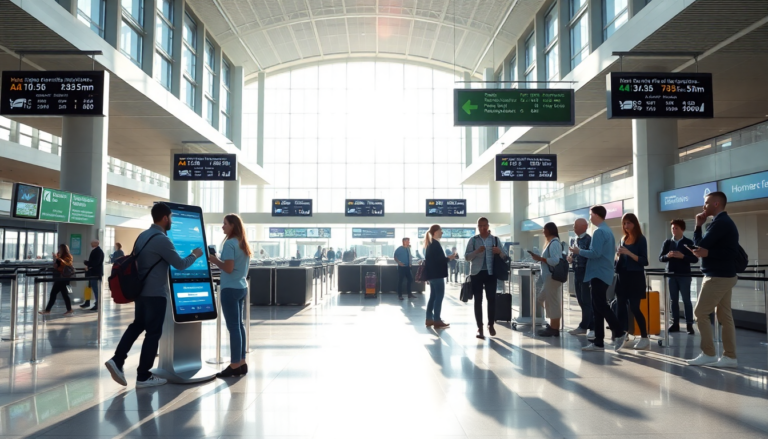Argomenti trattati
In recent months, the airline industry has experienced a fascinating transformation, largely fueled by advancements in technology—especially artificial intelligence (AI). Instead of just relying on tech giants, airlines are now taking the reins, innovating to boost both operational efficiency and the customer experience. So, what exactly is happening in the skies? This article explores the latest developments that showcase how airlines are leveraging AI to tackle some of their most pressing challenges.
The Rise of AI in Airline Operations
As the aviation industry continues its recovery from the pandemic’s fallout, airlines are welcoming AI technologies with open arms to streamline operations and enhance service delivery. Take American Airlines, for example. They’ve made significant strides in digital transformation, rolling out a suite of AI-powered features aimed at minimizing disruptions throughout the customer journey. Among these innovations are real-time notifications via their mobile app, improved biometric screening processes, and a groundbreaking AI-driven rebooking system.
This generative AI-based rebooking system is particularly noteworthy. It not only helps passengers rebook their flights but also optimizes decisions on aircraft holds. By proactively managing disruptions, it addresses a major pain point for travelers—missed connections. At their major hubs, American Airlines has implemented a proprietary flight hold system that uses AI to predict which outbound flights can be delayed to accommodate passengers arriving from delayed inbound flights. This approach enhances overall connectivity and keeps travelers moving smoothly.
Innovative Approaches from Korean Air
Another airline making waves in modernization is Korean Air. They’ve recently completed a major upgrade of their contact center operations by shifting to a cloud-based infrastructure. This involved replacing antiquated PCs and operating systems with Google’s ChromeOS and deploying generative AI tools specifically designed for their service agents. While it might sound like a standard IT upgrade, the impact on customer experience—especially during travel disruptions—is profound.
Korean Air’s strategy emphasizes enhancing human support rather than replacing it with automated systems. By equipping their agents with advanced tools, the airline aims to offer immediate assistance and reassurance to travelers during stressful moments. This shift not only boosts operational efficiency but also lays the groundwork for more advanced AI applications throughout the customer journey.
Efficiency in Aircraft Turnarounds
Then there’s Lufthansa, which has recently teamed up with airport operator Fraport to develop an AI solution named “seer.” This collaboration underscores the airline’s commitment to improving aircraft turnaround times—a critical operation that has historically been complex and time-consuming. By implementing AI technologies, they aim to enhance punctuality, reduce delays, and ultimately contribute to greater traveler satisfaction.
By optimizing turnaround processes, airlines can save precious time, lower operational costs, and cut down on CO₂ emissions by reducing unnecessary aircraft idling on the ground. This kind of collaborative approach highlights how airlines can leverage technology to deliver real benefits for both their business and their customers.
The Future of AI in Aviation
These examples represent just a glimpse into how AI is becoming a key player in airline innovation. As the industry shifts from theoretical discussions about technology’s potential to practical implementations that create real impact, the urgency for modernization and AI adoption becomes clear. Only those airlines willing to adapt will truly thrive in an increasingly competitive landscape.
In conclusion, the airline industry’s embrace of AI marks a significant shift towards smarter, more efficient operations that prioritize customer experience. As these technologies continue to evolve, they will undoubtedly play a crucial role in shaping the future of travel, ensuring that airlines can effectively meet the demands of today’s savvy travelers.

